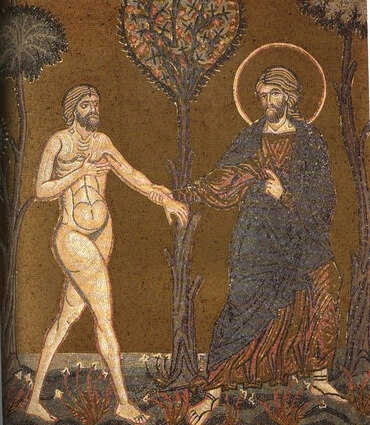1
After these things the word of the LORD came to Abram in a vision, saying, Fear not, Abram: I am thy shield, and thy exceeding great reward.
2
And Abram said, Lord GOD, what wilt thou give me, seeing I go childless, and the steward of my house is this Eliezer of Damascus?
3
And Abram said, Behold, to me thou hast given no seed: and lo, one born in my house is my heir.
4
And behold, the word of the LORD came to him, saying, This shall not be thy heir; but he that shall come forth out of thy own bowels shall be thy heir.
5
And he brought him forth abroad, and said, Look now towards heaven, and tell the stars, if thou art able to number them: and he said to him, So shall thy seed be.
6
And he believed in the LORD; and he counted it to him for righteousness.
7
And he said to him, I am the LORD that brought thee out of Ur of the Chaldees, to give thee this land to inherit it.
8
And he said, Lord GOD, by what shall I know that I shall inherit it?
9
And he said to him, Take me a heifer of three years old, and a she-goat of three years old, and a ram of three years old, and a turtle-dove, and a young pigeon.
10
And he took to him all these, and divided them in the midst, and laid each piece one against another: but the birds he did not divide.
11
And when the fowls came down upon the carcases, Abram drove them away.
12
And when the sun was going down, a deep sleep fell upon Abram; and lo, a horror of great darkness fell upon him.
13
And he said to Abram, Know certainly that thy seed shall be a stranger in a land that is not theirs, and shall serve them; and they shall afflict them four hundred years;
14
And also that nation which they shall serve, will I judge: and afterward shall they come out with great substance.
15
And thou shalt go to thy fathers in peace; thou shalt be buried in a good old age.
16
But in the fourth generation they shall come hither again: for the iniquity of the Amorites is not yet full.
17
And it came to pass, that when the sun had gone down, and it was dark, behold a smoking furnace, and a burning lamp that passed between those pieces.
18
In that same day the LORD made a covenant with Abram, saying, To thy seed have I given this land, from the river of Egypt to the great river, the river Euphrates:
19
The Kenites, and the Kenizzites, and the Kadmonites,
20
And the Hittites, and the Perizzites, and the Rephaims,
21
And the Amorites, and the Canaanites, and the Girgashites, and the Jebusites.







